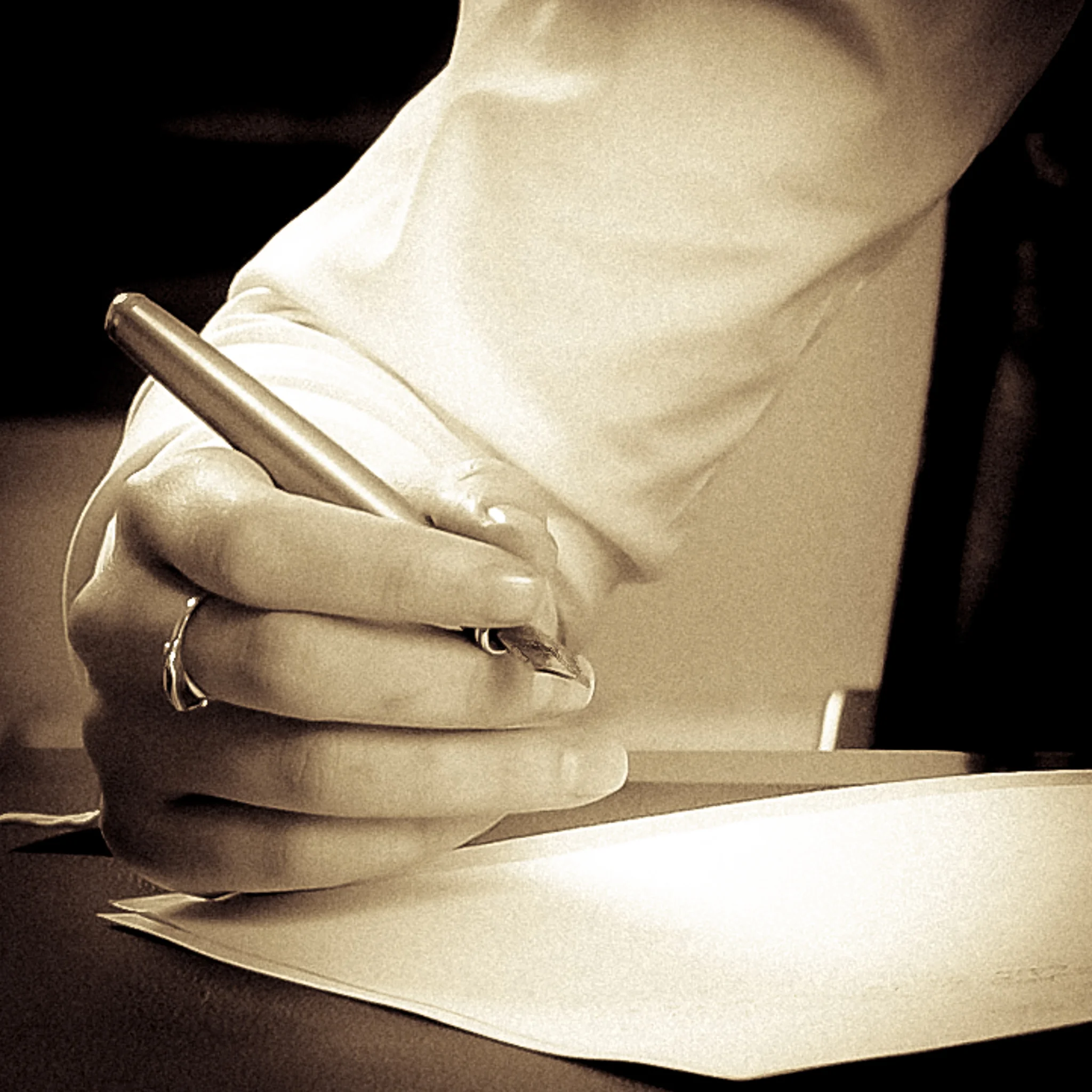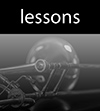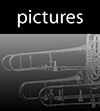Last week marked a first, I was a part of an all concerto concert with the Boston Symphony Orchestra that featured several members of the orchestra in a solo role. It isn't often that the trombone gets to be at the front of any orchestra, let alone the BSO. When I was asked to participate in this concerto concert I did submit several suggestions and artistic management settled on the Nino Rota Trombone Concerto as best suited for the program.
I miss taking orchestral auditions sometimes for how much I learned from each experience. The intense pressure around such a potentially life changing event allowed personal insight into my performance practice that I couldn't get any other way. Thus, I always experienced tremendous growth in my trombone playing regardless of the outcome of any audition. Obviously, three memorized performances of the Rota Concerto drew out these 5 insights that I'd love to share with you in hopes that your path to similar success can be shorter than mine.
1. JUST SAY NO
Saying YES to a big project is exciting but it does mean you'll need to say NO to a lot of other projects and holy cow is this is a real challenge! If you're anything like me, you know it's a lot more fun to say YES to an opportunity than to say NO and hope that they'll ask you next time. But it extends to other facets of life beyond work and extra projects, like what you eat, and how you work and how you spend your "me time". To start, you simply have to acknowledge that you do have a choice in all obligations to say yes or no. For a big project, it's best to stay aware of whether any decision regarding your time management will improve your chances of success or not.
I love extra projects and I hate saying no for fear that they may evaporate completely. Some things I knew would be waiting for me when I was done, but of course, there really is no guarantee. The big ones were that I had to remove myself from completely were Holiday Pops and extra teaching. I celebrated Christmas with my family early and briefly, then locked myself away at Tanglewood for 2 weeks to memorize and prepare. To prepare for recitals and indeed auditions, we all must practice this skill of NO. Said elegantly, NO can be delivered to extra projects with everyone on both sides still smiling. Avoid a pejorative or aristocratic tone at all costs. Just remember, saying no to distractions and extra projects now allows you to say YES to all your long term goals. You must practice this skill, just like long tones, lips slurs, and your scales.
2. DRY MOUTH? SKIP WATER - TRY GATORADE
Dry mouth can make attacks foofy at best and at worst, can rob us of response and flexibility almost completely. With dry mouth and performance pressure, moisture disappears from your mouth and whatever saliva is left turns into some sort of evil career ending glue. As a result, whatever nervousness that was small turns to insurmountable tension throughout the body. This tension makes it difficult to take a deep breath while the lips feel tight, like you just got a shot of novocaine at the dentis.
I'm sure you and your colleagues have tried water on stage to sip for a stressful performance. I must say, I always found this strategy to be ineffective. Consider where saliva comes from for a moment. Saliva is produced by the salivary glands under the tongue. These glands spring into action whenever flavor is detected by your taste buds. Water has no flavor, it's simply wet so as soon as you swallow the water, most of the lingering benefit you were hoping for is gone and you're right back where you were before you took that hopeful sip.
I didn't want to have water on stage with me during the concert so I decided instead to drink half a bottle of Gatorade just before I left my warm up room and it worked beautifully. For your purposes, I'm sure Apple Juice, Powerade, or even Lemonade would suffice. I'd recommend you avoid anything thick (like milk), carbonated, or salty.
Break a challenge down to its smallest parts and even the hardest task becomes manageable.
3. MEMORIZE IN SMALL CHUNKS
"Inch by inch, life's a cinch. Yard by yard, life is hard." I first heard this gem of a quote from Doug Yeo who found it scribbled in a method book bequeathed to him by Edward Kleinhammer. Of course, I began working on the Rota Concert when it was chosen, but memorization is a specific skill and I used the inch by inch method to great success.
Memorization is somewhat controversial as a performance practice. In fact, many argue the strategy is not worth the risk. At Boston University, my students are required to memorize a portion of their recitals. I've observed consistently that memorized performances are always the best prepared and the least affected by distractions. I find my BU students tremendously inspiring for their commitment to this skill and felt it hypocritical if I did not perform the Rota from memory.
Inch by Inch was my method. My practice routine was to break each movement of the Rota down to 1-2 phrase chunks. I buzzed my rim gently along with the Alain Trudel recording while I looked at the music 3-4 times in a row, and then turned the sheet music around to play with the recording on the trombone those one or two phrases once by memory. This repetition, of inch by inch, allowed me to get very familiar with the accompaniment and the solo at the same time. It also reinforced consistent success which also helped a great deal.
Inch by inch, the progress came reliably and very quickly. And because it was so thorough, the results were far more trustworthy to stick around the next day. Although the old adage directly applies in this case to artistic development on the trombone, I invite you to see how many other facets of life to which you can apply it.
Writing down thoughts for 2-3 minutes can focus a scattered mind.
4. KEEP YOUR HEAD CLEAR BY WRITING
Have you ever tried to hold up something heavy when someone tells you a funny joke and feel your strength disappear with your laughter? Similarly, to divide the focused mind is suicide to the performer's artistic endeavors effectively turning a gentle performance challenge into a major battle.
These days we don't practice sitting quietly without anything to do but smile at the infinite beauty around us. A nervous mind is in several different places at once, moment by moment. If you practice meditation or prayer you definitely have a leg up here. There is a skill to connecting to the present that may or may not be mastered by anyone when the downbeat arrives. However more effective you may be than me at doing this, I did find a way to quiet my mind so I can focus on the music that I'd love to share with you.
10 minutes before go time, I wrote down what I was nervous about, and what I could do about it in that moment. These line items where everything from, my stomach is tight to my fingers feel like they're electric. My mind raced one night as it settled on a review that pointed out although everything was beautiful, I did miss 2-3 notes in the last movement on a Friday performance. 20 minutes before one concert I received a text ending a business partnership straight out of the blue. I'm afraid it's true, life continues its drama regardless of any important projects that would steal your attention away from a performance.
I wrote it all down because what I feel is real, and then I wrote down what I can do about it over the next 25 minutes (which was mostly nothing) and much of the anxiety disappeared as it seems my heart understood that the issues were handled for now. I wrote that the best strategy was to focus on world class breath support and my cantabile - one note at a time. I knew none of my strategies were a magic bullet for the butterflies or sweaty palms, but that's not the point. The point of the exercise was to give my mind the freedom to focus on the music in my heart and supportive breathing to make it happen.
I'd love to tell you I was sure everything would go great, but I can't. I'd love to say that I found a magic breath, or slide technique, or mouthpiece that made success a surety but part of playing well is embracing the unknown. Writing down all the places your mind wants to be is a way of letting them go for a while so you can focus effectively on what you want to sound like.
5. BE AWARE OF THE LOVE AROUND YOU
Dress rehearsal for the Nino Rota Trombone Concerto
One thing I learned in the Boston Symphony is it's more important to be together than anything else. We support each other in concerts and rehearsals, pops and chamber works with this notion that drives dynamics, rhythm, balance, and pitch - we play together no matter what. This philosophy requires a huge amount of emotional generosity and kindness that is inspiring to say the least.
Besides the Rota Concerto for Trombone, the Boston Symphony program included utterly fantastic performances of the Vivaldi Piccolo Concerto in C played by Cynthia Meyers, the Jolivet Concerto for Trumpet played by Thomas Rolfs, the Krommer Concerto No. 2 for Two Clarinets played by William Hudgins and Michael Wayne, and the Schumann Concert Piece for Four Horns played by Jamie Sommerville, Rachel Childers, Michael Winter, and Jason Snider.
Backstage everyone was aware of the pressure and there was an extraordinary amount of positive support and reinforcement. My colleagues cheered each other on, offered fantastic performance insights, and on stage there was virtuousic and extremely flexible artistry. People were extremely eager to see each other succeed and I am absolutely grateful to know this as the most important thing I learned performing at the front edge of the stage.
EPILOGUE
If you missed the live concerts or the radio broadcasts, I am truly sorry. Due to Mechanical License restrictions, the WGBH has informed me they are unable to post an archive to the Jolivet or the Rota as they are not in public domain. For better or worse I have linked the reviews below. If you heard the concerts, I'd love to hear in the comments below if you feel like they are accurate. My hope is that although it is rare for a trombone to be featured at the front of the stage, it will happen with a good deal more regularity now.
THURSDAY, JANUARY 5: BOSTON GLOBE (Zoë Madonna)

























